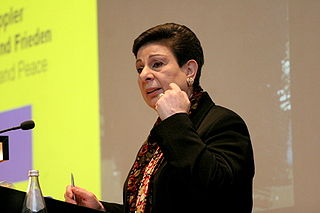A Quote by Ben Domenech
To think that the heritage of the West, including post-war liberalism, was a selfish, secular, practical arrangement of politics is a fiction.
Related Quotes
The bloody years of war and all the atrocities in European history have taught the Europeans that secular politics free of religious hatred is mainly a question of peace. This concept is not anchored in the same way in the consciousness of Turks, which has to do with the fact that the secular was forced upon us by the army.
That's our nuclear weapons strategy [going to frighten people], as of the early post-Cold War years. And I think this is a real failure of the intellectual community, including scholarship and the media. It's not like you had headlines all over the place. And it's not secret, the documents are there. And I think that's probably the right picture.
I write some art criticism, and one thing that's clear to me is that politics is fashionable in the American art world in a way it maybe isn't in American fiction. Your work of art becomes fashionable the moment it has some kind of political commentary. I think this has its dangers - the equation between fashion, politics, and art is problematic for obvious reasons. Nonetheless, the notion of politics as being de rigueur in the world of fiction is almost unthinkable. In fiction in America at the moment, the escape into whimsy is far more prevalent than the political.
For decades, since the mid-twentieth century, the nationalist movement, and Fatah in particular, has dominated the political scene. Palestinian politics were primarily nationalistic, secular. Now, suddenly we are seeing the election of a religious party with extreme political ideologies and with a social agenda that seems inconsistent with the cultural heritage of the Palestinian people.






































